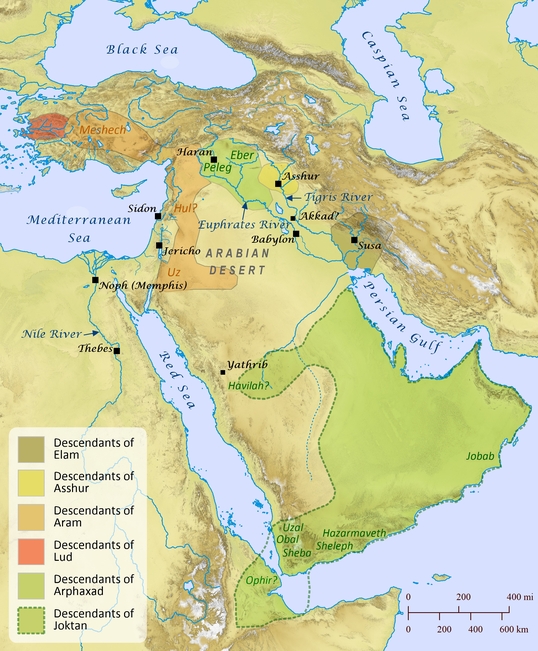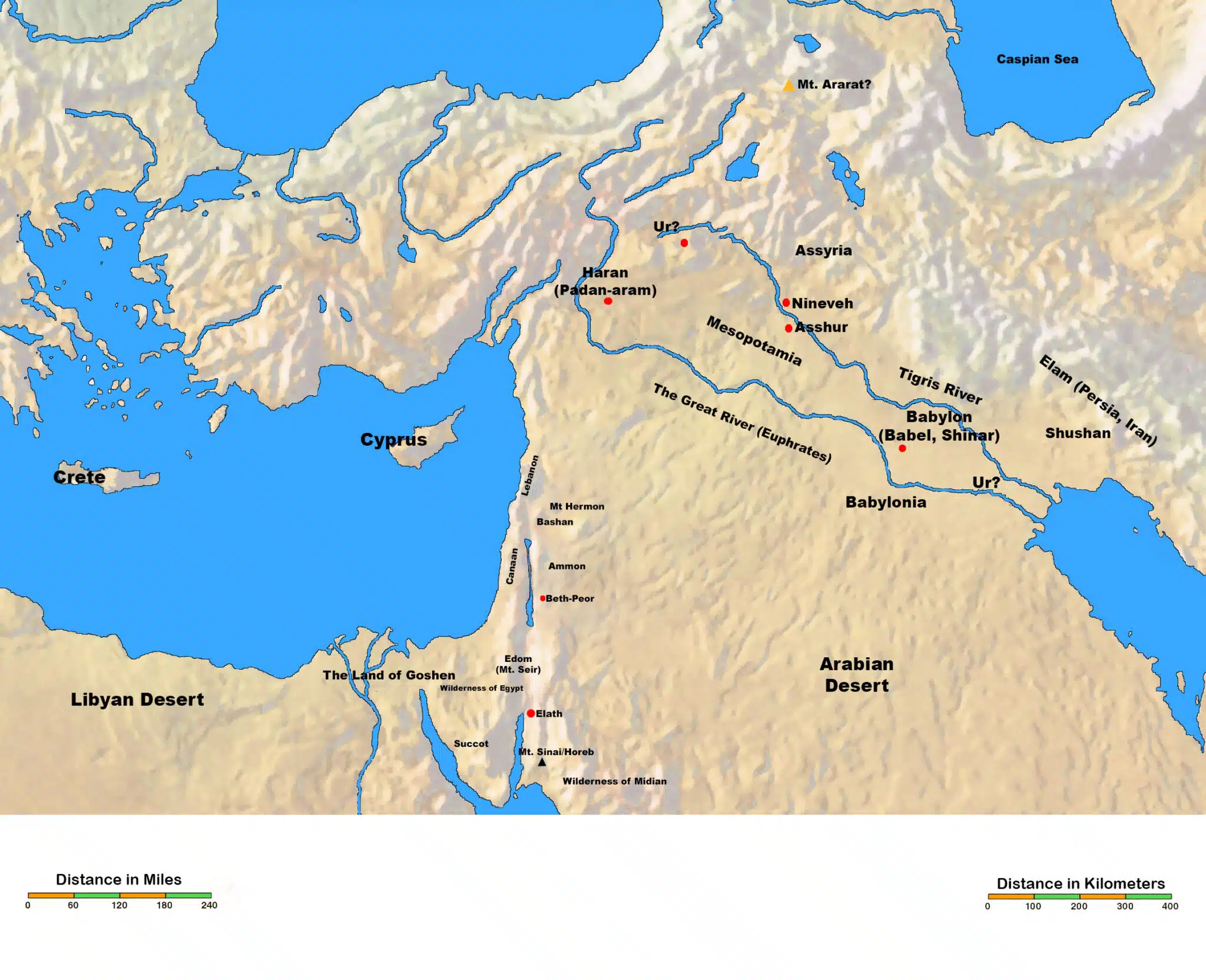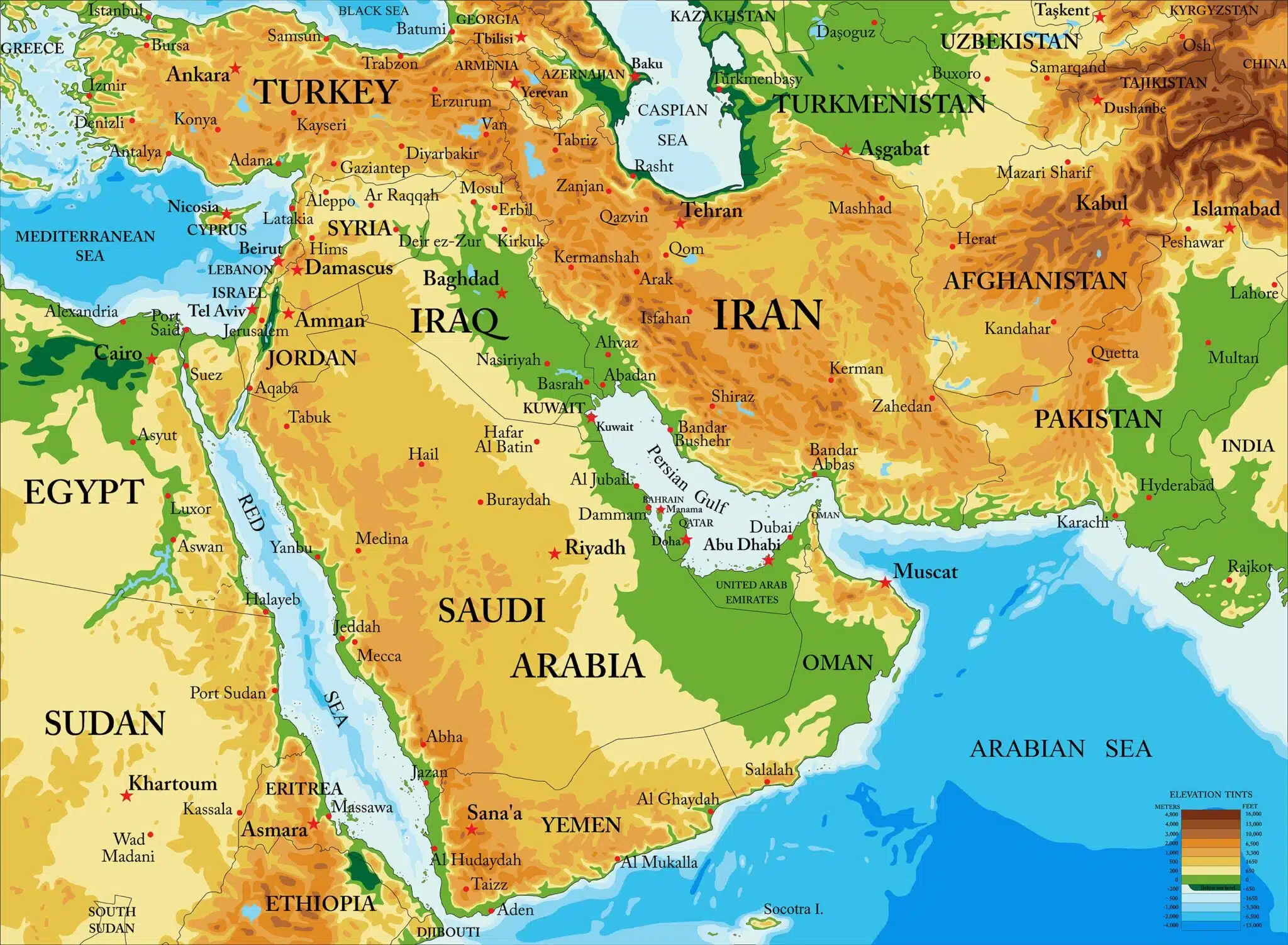Shem had twenty-six descendants listed in the table of nations. A total of seventy nations were credited to Noah by his descendants.
Now their settlement extended from Mesha as you go toward Sephar, the hill country of the east. This refers to all the sons of Joktan in the previous verses. Mesha was a region in northern Arabia, south of Hadramaut. Mesha was perhaps a branch of the Ishmaelites (see “Massa,” Genesis 25:14). Sephar was south of Hadramaut in Yemen, southern Arabia. Sephar may be Ẓafar, a port city, and center of the spice trade in Hadramaut. Shem has a total of 26 descendants with the most detail given to the descendants of Joktan, who has thirteen sons. This closes the accounting of the sons of Shem.
Genesis Chapter 10 indicates the separate locations of the races and chapter 11 explains how the separation occurred. Genesis 10:1 spoke of “Noah’s sons, who themselves had sons,” and verse 32 shows the consequence: “From these the nations spread out.” From Japheth came 14 nations (7 sons and 7 grandsons), Shem produced 26 nations (5 sons, 5 grandsons, 1 great-grandson, and at least 20 descendants into the 6th generation) and Ham 30 nations (4 sons, 23 grandsons, and 2 great-grandsons). The total of 70 nations indicates completeness and represents the races of the world, which would later be blessed by the descendants of Abraham (Genesis 18:18). These are the sons of Shem, according to their families, according to their languages, by their lands, according to their nations. These are the families of the sons of Noah, according to their genealogies, by their nations; and out of these the nations were separated on the earth after the flood. All people come from one source, namely Noah. Their “lines of descent” inevitably led to the multiplicity of “nations” that “spread out” (Genesis 10:5) over the earth. Israel would become God’s chosen nation but was called to be a blessing to a world of 70 nations.
Biblical Text
30 Now their settlement extended from Mesha as you go toward Sephar, the hill country of the east. 31 These are the sons of Shem, according to their families, according to their languages, by their lands, according to their nations. 32 These are the families of the sons of Noah, according to their genealogies, by their nations; and out of these the nations were separated on the earth after the flood.
Check out our other commentaries:
-
Hebrews 10:32-34 meaning
The Hebrews have proven in the past that they are capable of enduring through trials, suffering for Christ’s sake, and remaining faithful....... -
Deuteronomy 27:1–8 meaning
Moses and the elders prescribe the rituals to be performed when Israel arrives in the Promised Land....... -
Deuteronomy 24:16 meaning
Moses forbade the Israelites from punishing one family member for the actions of another member of the family. Each person had agency to choose, and...... -
1 Thessalonians 2:3-8 meaning
Paul draws a contrast: he did not preach the gospel to the Thessalonians out of ignorance, impure motives, deception, flattering speech, greed, or for man’s...... -
Exodus 36:20-30 meaning
The boards for the walls of the tabernacle are built.......





